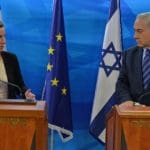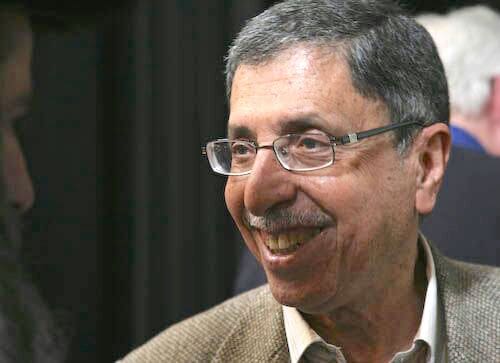
Overview
A worldwide wave of analysis and activism is marking the 100th anniversary of the Balfour Declaration on November 2, 2017. The Declaration gave an imperial imprimatur to the Zionist movement’s resolution at its first conference in Basel in 1897 to “establish a home for the Jewish people in Palestine secured under public law” and launched never-ending war and violence and the dispossession, dispersal, and occupation of the Palestinian people.1
Could history have taken a different trajectory? Were there points during the past century at which the Palestinians could have influenced the course of events in a different direction? We turned to the historians and analysts in Al-Shabaka’s policy network and asked them to identify and reflect on a turning point at which things might have gone differently had the Palestinian people decided on another course of action, and to draw lessons that should be applied in this quest for self-determination, freedom, justice, and equality.
The roundtable begins with Rashid Khalidi and his pithy reflection on the Palestinian leaders’ perennial misunderstanding of global power dynamics, using the 1939 White Paper to illustrate this fatal weakness. Zena Agha zeroes in on the 1936 Peel Commission – the first time partition was mentioned as a solution – and questions whether partition is indeed inevitable, even today, as the Commission averred.
Jamil Hilal tackles the Partition Plan itself – UN Resolution 181 of 1947 – noting the rationale of the minority of Palestinians that argued for accepting it to buy time to recover the strength of the national movement after it was crushed by the British and the Zionists. In drawing the lessons from Balfour, the Partition Plan, and Oslo, Hilal asks: When we ask what lessons we, as Palestinians, can draw from history, the question is always: Who is going to draw the lessons, and how can they be made to act on them?
How pivotal was the great catastrophe of the Holocaust in leading to the creation of Israel? Najwa al-Qattan argues that though there is certainly a historical connection, there is no causal relationship, and she thus urges a critical reading of history to map the future. Mouin Rabbani contests the accounts that Anwar Sadat’s 1977 visit to Jerusalem was a promising initiative that went sour, pointing out that when the Egyptian leader took the Arab military option against Israel off the table he deprived the PLO and the Arab states of a credible diplomatic option. Jaber Suleiman compares the fate of the 1987 Intifada against Israeli occupation to that of the Palestinian Revolt of 1936 against the British occupation and draws several lessons, in particular the importance of linking tactics to a clear strategic national vision that guides the Palestinian struggle at every stage. The roundtable was facilitated by Nadia Hijab.
Rashid Khalidi: The White Paper and a Systemic Misunderstanding of Power
Could the 1939 White Paper have been a turning point in Palestinian history?2 If anything, it would have been a minor one. Had the Palestinian leadership accepted the White Paper, they could have repositioned themselves vis-à-vis the colonial power. That might have improved their position at the end of the 1936-1939 revolt and aligned them with Britain when the Zionists turned against it.
However, Britain was a waning power. The United States and the Soviets were in the wings and burst on to the scene soon afterward. In 1941 the Nazis attacked the USSR and Japan attacked Pearl Harbor, and the world changed, so whatever the Palestinians might have done with Britain would likely have had little effect. In a sense, the great Palestinian revolt came too late. The Egyptians had rebelled in 1919, the Iraqis in 1920, and the Syrians in 1925. By the 1930s, especially once the Nazis came to power, the Zionist project was fully embedded in Palestine.
What that period does throw into sharp relief, however, is the chronic problem of the Palestinian leadership, which was, without exception, poorly served by a minimal understanding of the world balance of forces. Palestinians were competing with a colonial movement that was based in Europe and the US and made up of Europeans whose native languages were European and who were connected to influential people in both Europe and the US.
The Palestinian national leadership is so far from having a US strategy, it’s pitiful Share on XTo compete with a movement like that, Palestinian leaders would have had to have people with connections in the system who were fluent in the languages and who understood both international and domestic politics. The Palestinians did not have that during the British Mandate – just read their memoirs. Some did have inklings but they were unequal to the competition before and after the Balfour Declaration and before and after the White Paper. And not much has changed in the last 100 years, especially as regards the US. The PLO had a good understanding of the Third World and how it operated, a good understanding of the Soviet Union, and some understanding of Western Europe, which is why it scored diplomatic victories in the 1970s. But it had the dimmest understanding of US politics, and it still does.
The younger Palestinian generation that has grown up in the US and in Europe is far better positioned. It has the connections and understanding of how these societies function, which is not the case for Palestinian leaders, or indeed for their own parents’ generation. As this generation gains in wealth and influence as lawyers, doctors, media professionals, and financial managers, they will have no inhibitions about using their power and influence to promote justice for Palestinians.
If there is one lesson from history to draw from this brief discussion, it is that you don’t go to the top. You don’t speak to Lord Balfour or talk to Secretary Tillerson. It is the structures of power you have to understand – Balfour was part of a government, of a political party, of a class, of a system, and so is Tillerson. You have to understand those structures, as well as the media, and have a strategy to deal with them. The idea that you can go to the top is an illusion that Palestinians and Arabs generally have had because of the way the systems ruled by Arab kings and dictators work. The national leadership is so far from having a strategy to deal with the US, it’s pitiful. By contrast, Palestinian civil society is doing a fantastic job, both that based in the diaspora and in Palestine: They are the ones who have an understanding of how the world works.
Zena Agha: Partition was Not a Pillar of Policy
The long and baleful history of Palestine’s colonial conquest offers many mistakes and missed opportunities. In the context of the centenary of the Balfour Declaration, the Peel Commission – a report produced by the same imperial power as the 1917 Declaration – is a pivotal, if overlooked, moment in the history of the Palestinian quest for self-determination.
Conducted under the auspices of Lord Peel, the Commission was the result of the British mission to Palestine in 1936. Its stated aims were “to ascertain the underlying causes of the disturbances” in Palestine following the six-month Arab general strike and “to enquire into the manner in which the Mandate for Palestine is being implemented in relation to the obligations of the Mandatory toward the Arabs and the Jews respectively.”
According to the report issued in July 1937, the conflict between Arabs and Jews was irreconcilable and, as a consequence, the Commission recommended the termination of the British Mandate and the partition of Palestine into two states: one Arab, the other Jewish. Partition was presumed to be the only way to “resolve” the two sides’ antithetical national ambitions and extricate Britain from its predicament.
Partition was by no means inevitable nor reasonable Share on XDespite the commitments outlined in the Balfour Declaration, the Sykes-Picot Agreement, and the McMahon-Hussein Correspondence, the recommendation of partition formally acknowledged the incompatibility of Britain’s obligations to the two communities. The Peel Commission was the first recognition that the British mandate’s premise was untenable, almost 20 years after it was established. It was also the first time that partition had been mentioned as a “solution” to the conflict Britain had created.
Both parties rejected the Commission’s recommendation. Zionist leaders were dissatisfied with the size of the allocated territory, despite supporting partition as an outcome. From the Palestinian perspective, partition was a violation of the rights of the Arab inhabitants of Palestine. The Commission’s report sparked the spontaneous Arab revolt from 1936 until its violent quashing by the British in 1939.
It is difficult to say what form an alternative course might have taken. After all, the Arab revolt (and the failure of the Anglo-Arab-Jewish conference in London in February 1939) led to the issuing of the White Paper of 1939, which stated: “His Majesty’s Government therefore now declare unequivocally that it is not part of their policy that Palestine should become a Jewish State.” By any measure, this was a victory for the Palestinian community. It was what came after, namely the Second World War and the horrors of the Holocaust, that drastically tipped the scales in favor of a Jewish state in Palestine.
The Peel Commission and its aftermath offer a timely reminder that the partition of Palestine was never a pillar of the British Mandate. Rather, partition was suggested as a desperate measure to extricate Britain, as a colonial power, from the Palestine quagmire. That partition then became the established orthodoxy for the newly formed United Nations, and almost every negotiation since, was by no means inevitable nor reasonable. As we look to draw lessons for the future, it is perhaps worth dislodging the by now well-established myth that partitioning historic Palestine is the only means of securing peace, whatever form that peace may take.
Jamil Hilal: The Partition Plan and the Fork in the Road
To understand the roads not taken when UN Resolution 181 (also known as the Partition Plan) passed in 1947, one must revisit the Balfour Declaration of 1917 and its outcomes. The Declaration reflected Britain’s interests in the region, namely the use of Palestine as a safeguard of its control over the Suez Canal and as a buffer against French ambitions over southern Syria. British concerns were thus both economic (access to the Canal and access to and control of oil and gas) as well as political (control over Palestine as acquired from the League of Nations). This control is why Britain committed to establishing a “Jewish home” in Palestine, rather than a Jewish state.
Settler colonialism by European Jews against the wishes of the indigenous Palestinian Arabs implemented the Declaration. This British-instigated European colonization of Palestine started well before the dreadful atrocities committed by the Nazi regime in Hitler’s Germany. There was much Palestinian resistance to this double colonization of Palestine, of which the best known is the great rebellion of 1936-39. The leadership of the Palestinian national movement that fought Zionist colonization was split in its view of British rule over Palestine. Some leaders thought that Britain could be won over, while others considered it the main enemy. This split over the role of the imperial power versus the direct enemy is also in evidence today.
The measures the British and the Zionist forces took to crush the 1936-39 rebellion left the national movement exhausted, the leadership scattered, and the Palestinian economy in ruins. Thereafter there was no clear strategy, apart from demanding independence, a situation that also has similarities to today.
The Palestinian response to the UN Partition Plan reflected the exhaustion of the national movement. There was no unified strategy and no discussions to solicit the people’s views on the best course of action, both tactical and strategic. Only a small section of the national movement was ready to accept the Plan. The majority rejected it, but did not put forward a clear alternative. The minority that argued for Palestinian acceptance believed it could be used to foil the Zionist project of occupying as much of the land as possible with the minimum of its indigenous population. This group believed that acceptance would give the Palestinians space and time to build up their strength and their capacities, establish a state, and develop relations with the region and the world. Others argued that such a move would not thwart the Zionist plan.
The Palestinian response to the Partition Plan reflected the exhaustion of the national movement Share on XThe rejection of the Partition Plan was naturally understandable. For Palestinians it meant giving up more than half their homeland to a European colonial settler movement that invaded and colonized their country by force and with protection of the British Empire. It violated their right to self-determination and independence and their call for a democratic state that would guarantee the rights of all its citizens regardless of religion, ethnicity, and race. Furthermore, the British-Zionist project was not just against the Palestinians: The whole Arab region was pulled in.
The Zionist movement seized upon the rejection of the Plan as a refusal of a peaceful settlement and a justification for waging war against the Palestinians when they were unprepared, disorganized, and leaderless.
Alternatives to the Partition Plan were thus not fully developed and discussed. The arguments put forward by those who favored accepting the plan were not sufficiently debated, and no attempts were made to articulate a new strategy to confront the Zionist movement. Such a trajectory might have impacted Israel and led later to the reunification of Palestine on a democratic basis. Those ideas were at least something to discuss.
Ironically, some of the arguments from that era were echoed in 1974 in advocating the transitional program, also known as the 10-point program, which aimed to establish a state on any part of Palestine that was liberated. The program, which was approved by the Palestinian National Council (PNC), facilitated the entry of the Palestine Liberation Organization in the United Nations General Assembly as a non-voting member.
In 1998, the PNC approved the two-state solution at a time when the first Intifada had mobilized a great deal of global support for the Palestinian cause. However, the Oslo Accords of 1993 and beyond represented a much more detrimental partition of Palestine than even the original Partition Plan and culminated in the present period, in which the balance of power between Israel and the Palestinians locally, regionally, and internationally is heavily in favor of Israel.
Given the fact that the Oslo Accords have not resulted in an independent Palestinian state, we must ask: Should Palestinians persist with the two-state project while waiting for a change in the balance of power, or should they adopt a new strategy that calls for building a unified democratic state in historic Palestine – the slogan that enlightened elements of the Palestinian national movement raised before the Nakba, and again in the late 1960s? This time, however, the question must be tackled with a clear vision and strategy and through deliberation by Palestinian communities in historic Palestine and in the diaspora.
Yet discussion is not enough. When we ask what lessons we, as Palestinians, can draw from history, my question is always: Who is going to draw the lessons? And will those who have the power have the will to act with those lessons in mind? Intellectuals often think their analysis will somehow reach the political class that is in a position to take action. But without action by pressure groups, social movements, political parties, trades unions, and other forms of power, little will be achieved.
Najwa al-Qattan: Reading History Through the Lens of Reality
The emergence of the state of Israel in 1948 was the consequence of several historical developments stretching back to the nineteenth century. Although the Holocaust played a role in the birth of Israel, it was more akin to a midwife than to a parent. Nevertheless, there is the perception, both in the West and among Palestinians, that the two are causally related. This perception is not simply due to a logical fallacy according to which post hoc ergo proctor hoc, or B followed A, therefore A caused B. In fact, it is precisely the six short years that separate the two events that should give us pause. Here I argue against a direct causal relationship between the two, while also suggesting reasons for why they are twinned in the popular imagination. I conclude with the lessons that may be drawn from a more critical kind of history.
When David Ben Gurion announced the birth of Israel in May 1948, he was hardly conjuring a state out of whole cloth. Rather, he was capping 50 years’ worth of Zionist effort. Israel was the consequence of both long- and short-term historical developments: Racial or modern anti-Semitism in Europe in the nineteenth century; the emergence of the Zionist movement as both a response to modern anti-Semitism and to nationalist movements in Russia and Western Europe; the success of early Zionism in combining socialism with nationalism in order to settle “a land without people” by “a people without land;” the British Mandate for Palestine under whose protective framework – as enshrined in the Balfour Declaration – successive waves of European Jewish immigrants built pre-state social, economic, political, and military institutions.
Among the approximately 600,000 European Jews who had immigrated to Palestine by 1948, Holocaust survivors numbered 120,000. The population of Israel grew rapidly in the first few years of its life as new immigrants arrived. New waves of Holocaust survivors numbered 300,000, but there were also over 475,000 Jews from the Middle East and elsewhere. Considering the Zionist idea that the Jewish state was to provide a refuge from European anti-Semitism and a national home for the Jewish people, this was a moral and political blow to Zionism. The idea was that if you build it, they will come, but millions did not, even after the manmade human catastrophe of the Holocaust, which devoured six million Jews.
This is not to deny an historical connection between the two events. The first connection between the Holocaust and the creation of the state of Israel relates to timing. Although Zionist state builders were, by the early decades of the twentieth century, unanimous on the ultimate objective of establishing a Jewish state in Palestine, they disagreed on the optimal time (as well as the extent of the territory). Along these lines, the Holocaust certainly led the Zionist leadership to stress the urgency of the state, such as during the Biltmore Program in 1942, as did Britain’s announcement of its plans to withdraw from Palestine in 1947. Still, this does not mean that one caused the other; the plans and activities relating to state building were well advanced by that time.
The Holocaust was more akin to a midwife than to a parent in the birth of Israel Share on XThe second connection is the stuff of political propaganda: the linkage between the Holocaust and Israel is often used to denounce criticism of Israel as anti-Semitic and to erase from the narrative the statelessness and diaspora of the Palestinian people. Two years ago, Israel Prime Minister Benjamin Netanyahu went so far as to make the spurious claim that it was the Palestinians who suggested the idea of the Final Solution to Hitler.
Whether under occupation or scattered in their own Israeli-made diaspora, Palestinians sometimes imagine that had the Holocaust not happened, then Israel would not have either. Rather than reimagine the past, we are better served by learning from it in order to shape a peaceful and humane future. First, the secret to building a Palestinian state (no matter what form it takes) is the density and health of its people, its institutions, and its civil society, as well as the determination of its political leadership and civil society to challenge Israel’s occupation and denial of Palestinian rights. Second, although the Holocaust did not directly cause the state of Israel to emerge, we should wish it away for the only reason that matters: The moral one.
Mouin Rabbani: The Reverberations of Sadat’s Separate Peace
The Palestinian people seem to have a difficult relationship with years ending in the number seven. The First Zionist Congress convened in the Swiss city of Basel in 1897; 1917 saw Arthur Balfour issue his ignominious declaration committing Great Britain to the transformation of Palestine into a Jewish National Home; the Peel Commission, recommending that London adopt partition as official policy, published its report in 1937; UN General Assembly Resolution 181 recommending the partition of Palestine was adopted on November 29, 1947; and the resulting statelet of Israel occupied the remainder of Palestine and additional Arab territories in 1967. A half century later, in 2017, it seems more or less permanently ensconced in them. The prominent exception to this pattern of loss and tragedy is 1987, the year in which the Intifada, the popular uprising in the Occupied Palestinian Territory, erupted to once again give Palestinians everywhere hope of national liberation.
Often missing from this roll call is 1977, the year in which Egyptian leader Anwar Sadat launched his initiative to make a separate peace with Israel. Sadat’s self-proclaimed “pilgrimage” to Menachem Begin’s embrace is routinely presented as the auspicious beginning of an Arab-Israeli peace process that subsequently went sour. One doesn’t need the benefit of hindsight to understand that it was not, and could never have been, anything of the sort.
Sadat had spent much of the 1970s, and the years after the 1973 October War in particular, reconfiguring Egypt. Formerly the Arab world’s center of gravity that sought and achieved global prominence, it was under Sadat’s leadership that Egypt was gradually reduced to a US-Saudi client state. The accompanying socioeconomic reforms – the infitah policy – opened Egypt’s doors to every crooked capitalist and crony willing to pay the price of admission. Such changes also produced, in early 1977, an explosion of popular unrest, unprecedented since the 1952 coup, which came within inches of putting an end to Sadat’s rule. His flight to Tel Aviv later that year was a direct outcome of these developments. Yet the air of inevitability with which his initiative has since been invested – presented as a logical and necessary consequence of the 1974-75 Sinai Disengagement Agreements in the wake of the October 1973 Arab-Israeli War – is tantamount to reading history backward. It took friend and foe alike by utter surprise for good reason.
In one fell swoop, the idiosyncratic and increasingly erratic Egyptian leader took the Arab military option against Israel off the table. In doing so he also deprived the PLO and the Arab states of a credible diplomatic option.
That Israel has yet to name a settlement after Sadat is one of the region’s great mysteries Share on XThe immediate consequence was the devastating 1982 Israeli invasion of Lebanon and eviction of the Palestinian national movement from Lebanon. A decade later, the 1993 Oslo agreement was nothing if not an elaboration of the autonomy plan incorporated into the 1979 Israeli-Egyptian peace treaty. That Israel has yet to name a settlement after Anwar Sadat is one of the region’s great mysteries.
Had Egypt – as it nearly did – resisted the temptation of a separate peace with Israel in the late 1970s, the Middle East today would be a very different and almost certainly much better place. The Palestinians and Arab states would have retained a credible diplomatic option, and been in a position to apply meaningful military pressure if Israel had refused to reciprocate.
Jaber Suleiman: Re-learning the Lessons of the First Intifada
The first Intifada of 1987 was a brilliant model of Palestinian struggle against the Israeli occupation. It engaged all segments of the Palestinian people and was characterized by unity, organization, and creativity. It also successfully revived the Palestinian cause on the international stage after the Palestine Liberation Organization (PLO) was driven out of Beirut in 1982, losing its base.
Since then, every time the Palestinians rise up against the Israeli occupation we wonder: Will there be a new intifada – a third Intifada, give that the Intifada in the year 2000 was the second? Some analysts are quick to use the term “intifada” to refer to any promising popular action, such as the 2015 youth movement and, most recently, the Jerusalem “wave of anger,” which continues intermittently in 2017. This underscores the pivotal position of the first Intifada, which lasted three years. Indeed, it is comparable only to the great Palestinian revolt of 1936-1939. Both the Intifada and the revolt faced the same tragic fate, albeit under different historical circumstances.
The Palestinian leadership of the 1930s responded to Arab leaders’ appeal to halt the revolt to hear out the “good intentions of our ally Britain,” which had pledged to fulfil Arab demands. In 1988, the PLO decided at the 19th session of the National Council to extract political capital from the first Intifada to achieve freedom and independence. It believed it had brought the struggle home and that the Intifada had provided the impetus needed to implement the interim political program it had adopted in 1974, which involved the establishment of a Palestinian entity on any part of Palestine that had been liberated. The upshot was a deformity of a state as a result of the Oslo Accords.
The Palestinian leadership should be inspired by the fighting spirit of the Palestinian people Share on XGiven that the circumstances of the 1936 revolt were not conducive to the realization of the Palestinian right of self-determination, why was the first Intifada unable to draw on this rich experience in order to avoid its tragic fate? Instead, the first Intifada suffered the same fate because it was invested in the Oslo process too hastily, and the Palestinian people continue to reap its bitter outcome. This includes the division, fragmentation, and weakening of their national movement after it held a distinguished place among the world’s national liberation movements in the 1970s.
This question becomes even more pressing on the centennial of the Balfour Declaration, as the wretched Oslo peace process has arrived at a dead end after more than two decades of futile negotiations. The facts on the ground created by Israeli settlements – and Israel’s refusal to withdraw from the land occupied in 1967 – have rendered the two-state solution impossible. Today, it is urgent to question how the lessons of the first Intifada and its outcomes should be applied to a just resolution of the Arab-Israeli conflict.
- History reveals the importance of possessing a clear strategic vision for the Palestinian national struggle and ensuring that tactical moves feed into strategic ones, and vice versa, during all stages of the struggle and in light of changes on the ground and in global alliances. This ensures that, whatever the stage of struggle, political expediency is not prioritized over end goals.
- It is vital to uphold the legal underpinnings of the conflict, based on the principles of justice enshrined in the United Nations Charter, which supersede international law under Article I of the Charter. This ensures that the legal ground for Palestinian rights is not manipulated, and that those rights remain the reference point for all negotiations. This was not the case in Oslo.
- The Palestinian leadership – current or future – should be inspired by the fighting spirit that the people have demonstrated over a century of resisting the Zionist project. The leadership should learn from these historical experiences to boost its faith in the revolutionary potential of the Palestinian people, and prevent narrow and shortsighted political exploitation of solid achievements in the struggle that harm Palestinian national rights.
- Al-Shabaka publishes all its content in both English and Arabic (see Arabic text here). To read this piece in French, please click here. Al-Shabaka is grateful for the efforts by human rights advocates to translate its pieces, but is not responsible for any change in meaning.
- The British Government adopted the White Paper in 1939, and it was policy until the end of the British Mandate in 1948. The White Paper rejected partition and declared that the Jewish national home should be within an independent Palestine with limits on immigration.
Zena Agha is the Interim Director of the British Palestinian Committee. She previously served as Al-Shabaka’s US Policy Fellow (2017–2019), where her research focused on Israeli spatial practices, climate change, and Palestinian adaptive capacities. She was awarded the Kennedy Scholarship to pursue an MA in Middle Eastern Studies at Harvard University and holds a PhD from Newcastle University, where her research examined colonial cartography in Palestine. Her writing has appeared in The New York Times, Foreign Policy, The Nation, The Independent, Foreign Affairs, NPR, and El País.
Rashid Khalidi is the Edward Said Professor of Arab Studies in the Department of History at Columbia University. He is past President of the Middle East Studies Association, was an advisor to the Palestinian delegation to the 1991-1993 Arab-Israeli peace negotiations, and is the editor of the Journal of Palestine Studies. Khalidi is the author of Brokers of Deceit: How the U.S. has Undermined Peace in the Middle East (2013); Sowing Crisis: American Dominance and the Cold War in the Middle East (2009); The Iron Cage: The Story of the Palestinian Struggle for Statehood (2006); Resurrecting Empire: Western Footprints and America’s Perilous Path in the Middle East (2004); Palestinian Identity: The Construction of Modern National Consciousness (1997); Under Siege: PLO Decision-making during the 1982 War (1986); and British Policy towards Syria and Palestine, 1906-1914 (1980). He has written over ninety articles on aspects of Middle Eastern history.
Najwa al-Qattan is associate professor of history at Loyola Marymount University in Los Angeles. She is a graduate of the American University of Beirut, Georgetown and Harvard Universities. She has published on the Ottoman Muslim court, Jews and Christians in the Ottoman Empire, and the Great War.
Nadia Hijab is co-founder and honorary president of Al-Shabaka: The Palestinian Policy Network. She served as Board President from 2010-2021 and as Executive Director between 2011 and March 2018. A writer, public speaker and media commentator, Hijab’s first book, Womanpower: The Arab Debate on Women at Work was published by Cambridge University Press and she co-authored Citizens Apart: A Portrait of Palestinians in Israel (I. B. Tauris). She was Editor-in-Chief of the London-based Middle East Magazine before serving at the United Nations in New York. She is a co-founder and former co-chair of the US Campaign for Palestinian Rights and now serves on its advisory board. She continues to serve Al-Shabaka in an advisory capacity and support its mission.
Mouni Rabbani is an independent writer and analyst specializing in Palestinian affairs and the Arab-Israeli conflict. He is a senior fellow at the Institute for Palestine Studies and is a Contributing Editor to the Middle East Report. His articles have also appeared in The National and he has provided comments for The New York Times.
Jamil Hilal is an independent Palestinian sociologist and writer, and has published many books and numerous articles on Palestinian society, the Arab-Israeli Conflict, and Middle East issues. Hilal has held, and holds, associate senior research fellowship at a number of Palestinian research institutions. His recent publications include works on poverty, Palestinian political parties, and the political system after Oslo. He edited Where Now for Palestine: The Demise of the Two-State Solution (Z Books, 2007), and with Ilan Pappe edited Across the Wall (I.B. Tauris, 2010).
Jaber Suleiman is an independent researcher/consultant in Refugee Studies. Since 2011, he has been working as a consultant and coordinator for the Lebanese Palestinian Dialogue Forum at the Common Space Initiative, UNDP Support Project on Consensus Building, and Civil Peace in Lebanon. Between 2007 and 2010, he worked as a consultant for the Palestinian program of UNICEF in Palestinian refugee camps of Lebanon. He was a Visiting Study Fellow at the Refugee Studies Program, University of Oxford. He is also a co-founder of Aidoun Group & the Centre for Refugee Rights/Aidoun, and has written several studies dealing with Palestinian refugees and the right of return.






















